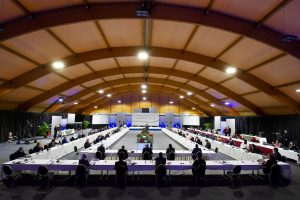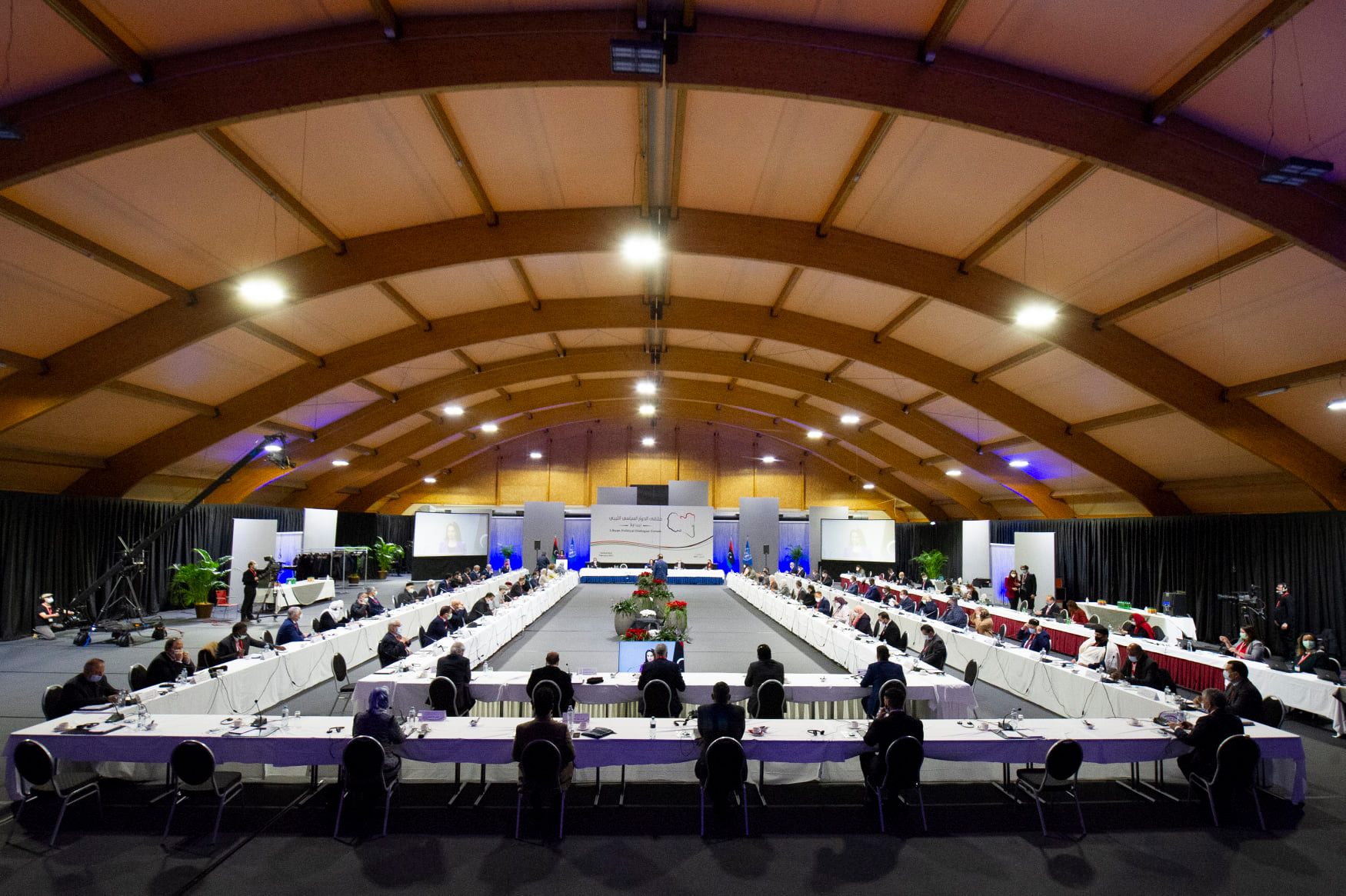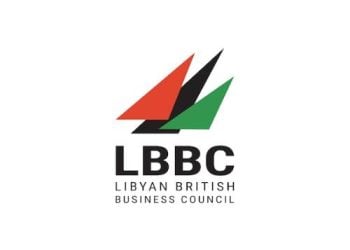By Sami Zaptia.

London, 1 February 2021:
Addressing the 74-members of the Libyan Political Dialogue Forum (LPDF) during today’s opening session to select Libya’s next temporary interim unified government, Acting UNSMIL head, Stephanie Williams said that with the adoption of the Roadmap in Tunis the LPDF have made important progress to respond to the aspirations and the demands of the Libyan people for a sovereign and unified Libya.
The LPDF are meeting in Geneva for 5 days. This comes after the announcement of the list of 45 candidates for the Presidency Council (24 candidates) and Prime Minister (21) positions on 30 January which followed the closure of the one-week period on 28 January for the submission of nominations for these executive authority positions.
The winners of the selection process will run another temporary interim administration with a narrow brief to prepare the country for the constitutionally based 24 December elections. This means they must organize a referendum on the controversial draft constitution before the elections for a fully empowered government. That would be the first such government since the 2011 revolution that overthrew the Qaddafi regime.
Williams said the LPDF have made important progress for the restoration of democracy, for a true commitment to national reconciliation in word and in deed, for the return of all of those who have been displaced and in exile, for the renewal of the legitimacy of institutions, and for the need to provide basic services to the Libyan people.
First and foremost, she added, the LPDF had put an indelible mark on the calendar for the holding of national elections on December 24th of this year. This decision was greeted with the overwhelming approval by your compatriots and it is a commitment which must be honoured at all costs, she stressed.
Reaching this far and achieving this progress in the political dialogue has been an arduous journey fraught with challenges, many of which you have managed to overcome with your wisdom and remarkable persistence, she added.
Williams commended the members of the three-person verification committee for their efforts in processing the list of nominations.
She said she was encouraged by the high number of nominations put forward, and welcomed the diversity represented by the pool of candidates drawn from all political and social components of the Libyan society. It is a positive sign that this process has inspired a high degree of buy-in and enthusiasm.
She conceded that while the selection of the interim unified executive is not an election in the traditional sense, open competition is good for democracy. This is the kind of competition that can only take place when the guns are silent, adding that a year ago, this would not have been possible.
The Libyan people are behind you, they support you, they want you to succeed. They need you to succeed. ‘‘Don’t let them down’’, she pleaded.
As part of commitment to some transparency, today the LPDF will listen to the presentations of the candidates for the three Presidency Council positions. They will address LPDF questions as well as questions from the Libyan public collected through a dynamic digital dialogue session Williams held last night. UNSMIL reported over 1,000 Libyans, most of them young Libyans, participated.
These interactive sessions will also broadcast live to the Libyan public. Williams said this is an opportunity for Libyans to ask some hard questions of these candidates.
Williams suggested these questions:
- Will the candidates honour the commitment to hold national elections on December 24 of this year?
- Will they put the interests of the people first and foremost, especially those who have been displaced for these many long years?
- Will they honour the separation of powers, the prerogatives for the Presidency Council and the government upon which the LPDF Roadmap agreed?
- Will they commit to civilian control of the military?
- Will they end blatant foreign interference in Libya’s internal affairs?
- Will they work together to unify the country’s institutions, to at long last bring to an end the debilitating institutional divisions?
- Will they work to fund and empower the municipal councils to ensure the smooth provision of services at the local level?
- Will they ensure that the health authorities are provided the necessary resources to tackle the ongoing COVID-19 pandemic?
- Will they commit themselves to govern well and transparently?
- Will they uphold human rights?
- Will they respect the rule of law?
- Will they combat corruption?
- Will they respect the principles of diversity and inclusivity especially as regards the appointment of women and youth in senior executive positions?
These are just some of the questions that should be posed to these candidates, she explained.
She reminded the LPDF that this process is not about power sharing or dividing the cake. Rather, it is to form a temporary government composed of patriots who agree to shoulder and share the responsibility to put Libyan sovereignty and the security, prosperity and welfare of the Libyan people above narrow interests and far from the spectre of foreign interference.
She told the LPDF that they should be proud that they and their colleagues in the other Libyan tracks have built a purely Libyan process with full Libyan ownership (Al mulkiya Al-Libiya). Indeed, the story that they have been writing is a uniquely Libyan story, she added.
In concluding, Williams said it was the United Nation’s privilege to accompany the LPDF and support it on this journey and pledged that UNSMIL will put all its energy into ensuring that the International Community respects and validates the decisions you are about to make.








